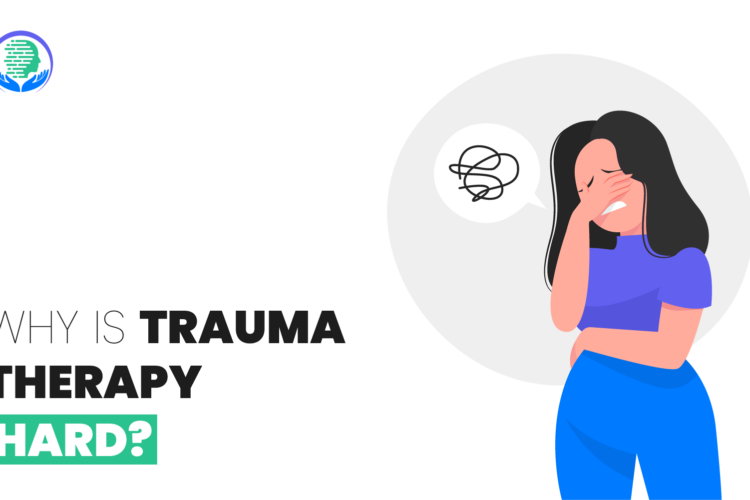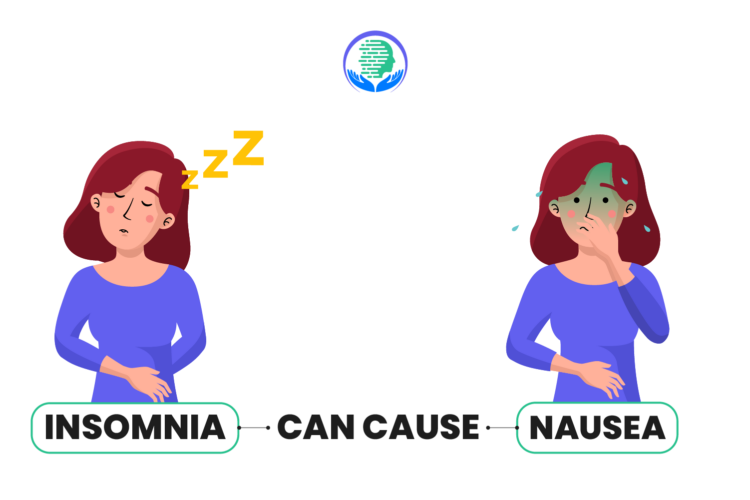
Life has ups and downs, and sometimes, tough things happen that can make us really scared and stressed out. It’s like a big obstacle course, and we all have our own challenges to face. The important thing is to be brave and not let fear stop us.
When we can’t handle these tough times, it can mess with our mental health, and we might end up with something called Post Traumatic Stress Disorder (PTSD). Moreover, it is like a bad mental sickness caused by too much stress and not feeling well.
In addition, your mental health is like a treasure, so protect it and let it shine bright on your journey to a happy life.
Thus, try to take care of your mental health as it is the first priority for your healthy routine.
Post Traumatic Stress Disorder (PTSD) definition
Post Traumatic Stress Disorder (PTSD) is a mental health problem that can happen to people who go through really scary or upsetting things. It can make them have bad thoughts, and nightmares, and feel very anxious.
Sometimes, they try to avoid anything that reminds them of a scary event. PTSD can make life tough, but there are ways to get help and feel better. Similarly, Zion Healthcare Services is the one that takes you out of such a scary trauma.
What are the post-traumatic stress disorder symptoms?
Post Traumatic Stress Disorder (PTSD) can have various symptoms, which can be grouped into four main categories;
1. Re-experiencing Symptoms
These symptoms involve reliving the traumatic event. It may include;
Flashbacks
In such a situation, you feel like you’re back in a traumatic moment.
Nightmares
In such a situation the person has scary dreams about the event.
Distressing thoughts or memories
Constantly thinking about the trauma, even when you don’t want to.
2. Avoidance Symptoms
People with Post Traumatic Stress Disorder (PTSD) often try to avoid reminders of the traumatic event. This can lead to;
- Avoid places, people, or activities that remind you of the trauma.
- Staying away from thoughts or feelings related to the event.
3. Arousal and Reactivity Symptoms
These symptoms can make you feel on edge or jumpy, and they might include;
- Being easily startled.
- Feeling tense or on edge all the time.
- Having trouble sleeping.
- Having angry outbursts or feeling irritable.
4. Cognition and Mood Symptoms
These symptoms affect your thoughts and feelings and can include;
- Negative thoughts about yourself or others.
- Feeling distant from friends and family.
- Difficulty remembering key aspects of the traumatic event.
- Losing interest in activities you once enjoyed.
- Feeling detached or emotionally numb.
If you or someone you know is experiencing these symptoms after a traumatic event, it’s crucial to seek help from a mental health professional. However, PTSD can be effectively treated with therapy and sometimes medication.
What are the 5 signs of post-traumatic disorder?
Here are the 5 signs that you can usually observe in a person who has PTSD.
- People with Post Traumatic Stress Disorder (PTSD) may experience recurrent and distressing memories of the traumatic event. These memories can be intrusive and cause significant emotional distress.
- Individuals with PTSD often try to avoid reminders of the traumatic event. This can include avoiding places, activities, or people that remind them of the trauma. They may also avoid talking or thinking about the event.
- Post Traumatic Stress Disorder (PTSD) can lead to negative thoughts and feelings that persist beyond the traumatic event. These can include persistent negative beliefs about oneself or the world and feelings of guilt or shame.
- Many people with PTSD experience heightened states of arousal. They may be easily startled, have difficulty sleeping, experience irritability or anger outbursts, and have difficulty concentrating.
- Individuals with PTSD may exhibit significant changes in their emotional responses. They may experience extreme emotional reactions, such as intense fear, anger, or sadness, that seem disproportionate to the current situation.
Post Traumatic Stress Disorder (PTSD) rate from 2019-2023
It is observed that PDSD rates have been increased in women rather than men. The average rate of this disease in women is 10-12% more than the men which is 5-6%.
- Specifically, researchers found that 60% of men and 50% of women deal with at least one traumatic experience over the course of their lives. So, trauma is actually quite common, affecting most individuals at some point regardless of gender.
- The number of adults who suffer from PTSD is about 3.5 %.
This proves women are more likely to have PDSD than men.
How does a person with PTSD behave?
A person suffering from PTSD may continually try to avoid situations, locations, activities, people, and conversations that trigger memories of the traumatic event they experienced. They will try to avoid anything associated with the trauma.
Additionally, they may experience problems with sleep, concentrating, and emotional control. They may constantly be on edge, feeling tense, and irritable, and become easily startled or angered. Loud noises or unexpected touches can cause severe anxiety. PTSD can also cause flashbacks or intrusive thoughts where the person feels as if they are reliving the event.
Likewise, they may experience physical symptoms like increased heart rate or sweating when exposed to triggers. Interpersonal relationships can be difficult as the person withdraws from social activities and has problems trusting others due to feeling constantly threatened.
Subsequently, PTSD takes a significant toll on one’s daily life and sense of safety, control, and well-being.
Post-traumatic stress disorder acute vs. chronic
| Acute PTSD | Chronic PTSD |
| Occurs within 3 months after the trauma | Develops when symptoms last for more than 3 months after the trauma |
| Symptoms are severe but usually lessen over time | Symptoms are persistent and ongoing for years if left untreated |
| Many people experience acute PTSD after a trauma but their symptoms go away | About 30% of people with acute PTSD go on to develop chronic PTSD if not treated |
| Symptoms include distressing memories, nightmares, flashbacks, and avoidance | All the symptoms of acute PTSD plus increased negative changes in mood, thoughts, and feelings such as depression, guilt, and Paranoia. |
| No long-term mental or physical health effects are expected if symptoms resolve | Associated with increased risk of health issues like heart disease, and substance abuse if left untreated |
Post-traumatic stress disorder unspecified
Post-traumatic stress disorder unspecified is a temporary diagnosis. It means a person has some PTSD symptoms after a traumatic event.
Nevertheless, the symptoms do not fully meet the criteria for acute or chronic PTSD. Maybe the symptoms started recently. Or there aren’t enough symptoms. This diagnosis lets doctors start treatment right away. The treatment helps lower symptom severity. It aims to prevent PTSD from becoming chronic if symptoms continue.
What is the treatment of Post Traumatic Stress Disorder (PTSD)?
The treatment of post-traumatic stress disorder (PTSD) typically involves a combination of approaches tailored to the individual’s needs.
Psychotherapy
Various forms of psychotherapy, such as cognitive-behavioral therapy (CBT), exposure therapy, and eye movement desensitization and reprocessing (EMDR), are commonly used. These therapies help individuals process traumatic memories, manage symptoms, and develop coping strategies.
Medications
Antidepressants, particularly selective serotonin reuptake inhibitors (SSRIs), are often prescribed to alleviate symptoms of depression, anxiety, and mood swings associated with PTSD.
Supportive therapies
Group therapy and support groups can provide a sense of community and validation, allowing individuals to share their experiences and coping strategies with others with similar challenges.
Lifestyle changes
Regular exercise, a balanced diet, getting adequate sleep, and avoiding alcohol or substance abuse can help manage PTSD symptoms and improve overall well-being.
Treatment plans are typically tailored to each person’s unique experiences and needs, and it’s essential to work with a mental health professional to determine the most appropriate approach for addressing PTSD. Hence, early intervention and ongoing support are key to managing and recovering from this condition.
Conclusion
PTSD can be difficult to live with after experiencing trauma. But the good news is that there are proven treatments available that can significantly help reduce symptoms. The most effective approaches involve different types of psychotherapy where patients talk through what happened with a counselor. More specifically, cognitive behavioral therapy and exposure therapy have had great success in helping people slowly face their trauma. Therefore, you may rely on Zion Healthcare or each sort of assistance as we are here to resolve your issue.
Moreover, the medication prescribed by us can also treat co-occurring problems like depression, anxiety, insomnia, and nightmares that often accompany PTSD. Correspondingly, you may contact us for further details and queries.
FAQs
Is post-traumatic stress disorder capitalized?
Yes, “Post-Traumatic Stress Disorder” is typically capitalized because it is a formal medical diagnosis and a recognized mental health condition.
Can PTSD affect you physically?
Yes, PTSD can have physical effects, including sleep disturbances, headaches, gastrointestinal issues, and increased risk of certain medical conditions due to chronic stress.
What does PTSD do to a person?
PTSD can have profound effects on a person, causing symptoms like flashbacks, nightmares, anxiety, and emotional numbness. It can disrupt daily life, relationships, and overall well-being.
Does PTSD ever go away?
PTSD can improve and become more manageable with treatment, but for some individuals, it may not entirely go away. It can become a manageable condition with appropriate therapy and support.
Is PTSD a serious mental illness?
Yes, PTSD is considered a serious mental illness as it can severely impact a person’s emotional, psychological, and physical well-being, often requiring professional treatment and support.
How does PTSD affect a person and their life?
PTSD can significantly disrupt a person’s life, leading to symptoms like flashbacks, nightmares, anxiety, and emotional numbness. It can impact daily functioning, relationships, and overall quality of life.
Can people with PTSD love?
Yes, people with PTSD can still experience love and form meaningful relationships, but the condition may affect how they express and navigate emotions and connections.
What are some long-term effects of PTSD?
Long-term effects of PTSD may include chronic anxiety, depression, relationship difficulties, and an increased risk of physical health problems due to prolonged stress.
How to behave with someone who has PTSD?
Be patient, understanding, and non-judgmental. Listen if they want to talk respect their boundaries, and encourage them to seek professional help.


